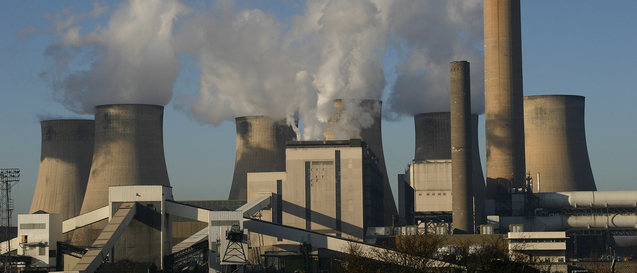$241.6 billion in investment gets you 138.5 gigawatts of renewable energy
A new study tracking global investment in renewable energy found that investors spent less money in 2016 to add more renewable energy capacity than in any previous year. In total, investors only spent about $241.6 billion in renewable energy investments in 2016, down 23 percent from 2015.
But they got a lot of bang for their buck. According to the collaborative report from the UN, the Frankfurt School, and Bloomberg New Energy Finance, investments in “wind, solar, biomass, and waste-to-energy, geothermal, small hydro, and marine sources [like wave and tidal energy]” resulted in the addition of 138.5 GW of energy capacity in 2016. That represents a nine percent increase year-over-year from the 127.5 gigawatts added in 2015.
While a one-percent increase may seem small, the report estimates (PDF) that renewable power “prevented the emission of an estimated 1.7 gigatonnes of CO2 in 2016.” (But don’t get too comfortable yet. The report also notes that “CO2 levels in the atmosphere in January 2017 were up 3.6 parts per million from a year earlier, at 406.1ppm.” Even as global carbon emissions appear to level off, we're still accumulating CO2 in the atmosphere.)
Still, capacity from renewable projects represented 55 percent of total new energy capacity in 2016, which is the highest ever recorded in the 11-year history of the annual collaborative report. Investors spent about twice as much on renewable energy as they did on fossil fuel-related energy, the researchers wrote.
The report didn’t track investment in hydroelectric projects greater than 50MW, and neither did it track energy storage or smart grid investments.
The researchers also note that not all of the drop in investment could be attributed to falling costs on renewable energy projects. “There was a marked slowdown in financings in China, Japan, and some emerging markets during the course of the year,” the report notes. Developing countries saw a lag in investment, as did China and the US. Europe, however, increased its renewable investment by three percent in 2016, with a 53 percent increase in offshore wind investment from 2015.
In a press release, Michael Liebreich, the Chairman of the Advisory Board at Bloomberg New Energy Finance, said “The question always used to be ‘will renewables ever be grid competitive?’ Well, after the dramatic cost reductions of the past few years, unsubsidized wind and solar can provide the lowest cost new electrical power in an increasing number of countries, even in the developing world—sometimes by a factor of two.”
“It’s a whole new world,” he continued. “Even though investment is down, annual installations are still up; instead of having to subsidize renewables, now authorities may have to subsidize natural gas plants to help them provide grid reliability.”
Links
- Get ready for 24-30% reduction in cost of wind power by 2030
- UN-backed report: Record new renewable power capacity added worldwide at lower cost
- Global carbon emissions flatline continues
- US energy production dropped in 2016 for the first time in 6 years
- Energy Dept. chief Perry says coal retirements threaten to destabilize the grid
- A look at the new battery storage facility in California built with Tesla Powerpacks
- The economics of energy generation are changing; more metrics favor solar, wind
- Analysis of sediment core ties Antarctic ice cover to CO2 concentration





